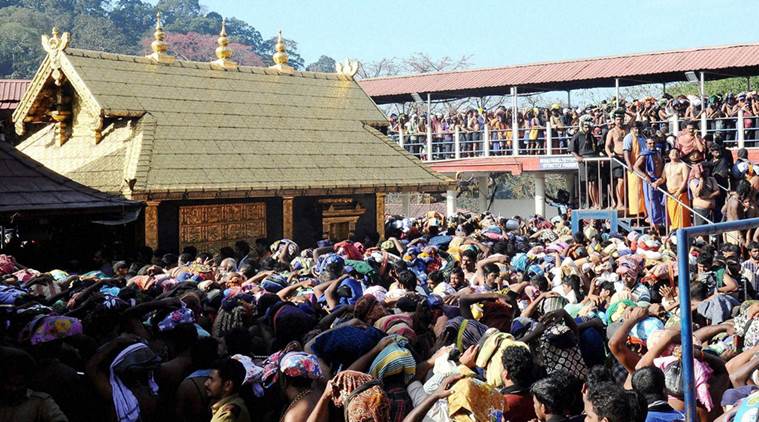
Kerala : Defending the ban on entry of women in Sabarimala temple, the Kerala government Friday told the Supreme Court that beliefs and customs of devotees cannot be changed through a judicial process and that “the opinion of the priests is final” in matters of religion.
It claimed that the restriction on entry of women in the menstrual age group cannot be tested on the ground of fundamental right to equality since it involves essential and integral part of practicing religion, which includes the “right to exclude persons”.
Ahead of the Assembly polls, the Congress-led UDF government also withdrew the “erroneous” stand of its predecessor, the Left Democratic Front (LDF) government, which had stated in an affidavit in November 2007 said “it is not fair to deny a section of women from entering Sabarimala temple”. The LDF government had favoured appointment of a commission of scholars to facilitate the change.
However, in the fresh affidavit, the present government has contended that the previous stand favouring a change had no legal basis and that it wanted to rectify the “mistakes” by withdrawing the stand taken in 2007. It said that rituals, ceremonies and modes of worship are exclusive matters of religion protected under Articles 25 and 26 of the Constitution and they entitle people and communities to manage their own affairs.
“In the context of Sabarimala, the administration vests with the Travancore Devaswom Board under the provisions of the Travancore-Cochin Hindu Religious Institutions Act, 1950. Under the Act, there is a statutory duty cast on the Board to arrange worship in temples in accordance with the usage. Therefore, in matters of religion, it is the opinion of the priests that is final,” it said.
The government stated that “the right to exclude persons who are not allowed to participate in worship according to the tenets of the religious institution in question is a matter of religion” and such essential or integral parts of religion are “immune” from challenge under Article 14 (right to equality).
Source : Indian Express





Male domination, all are equal in front of God, why this discrimination.